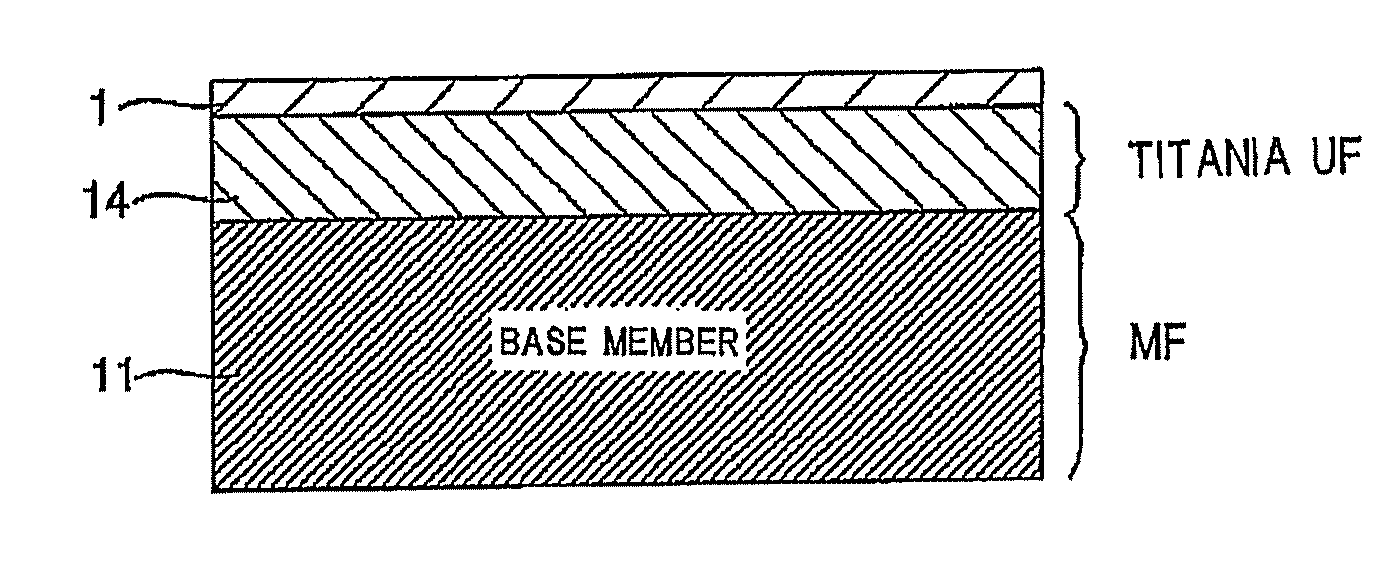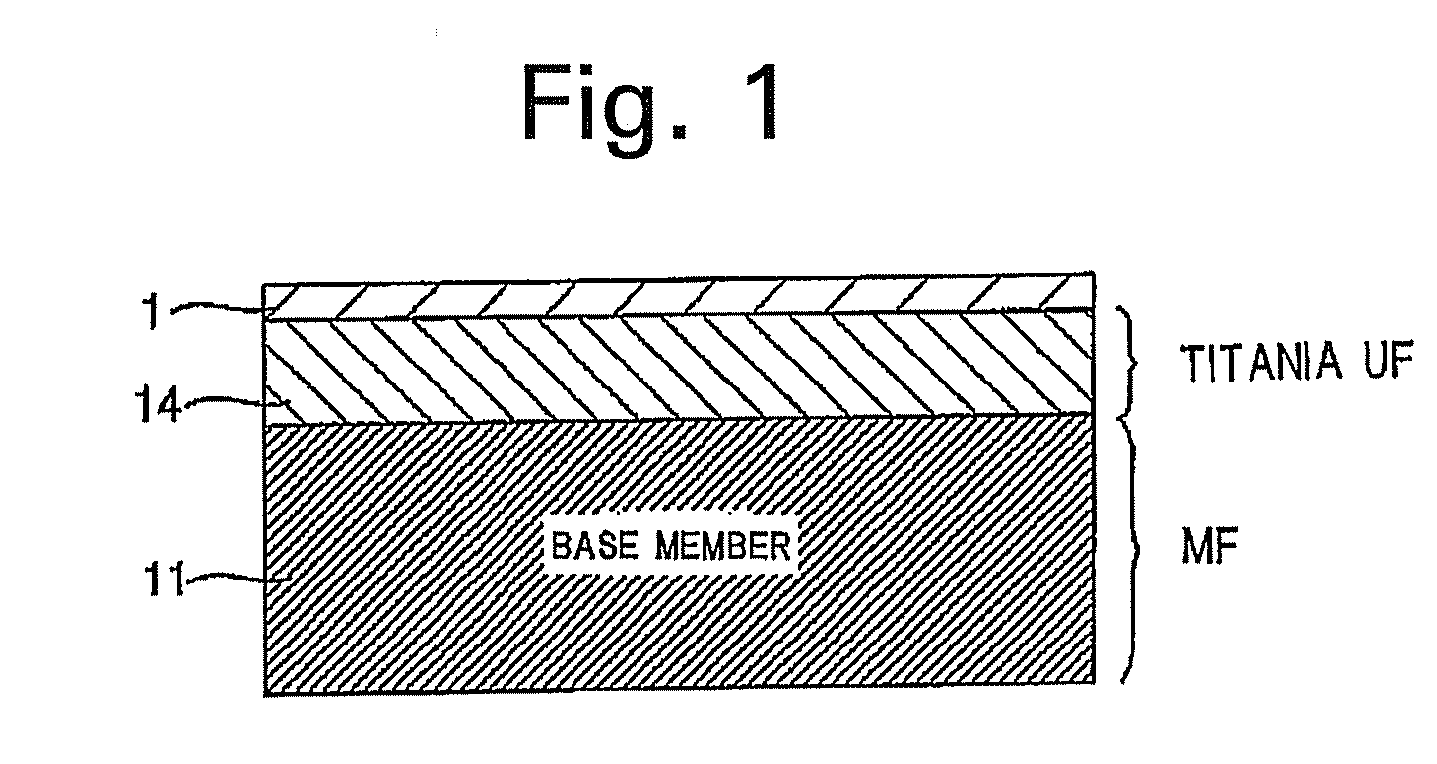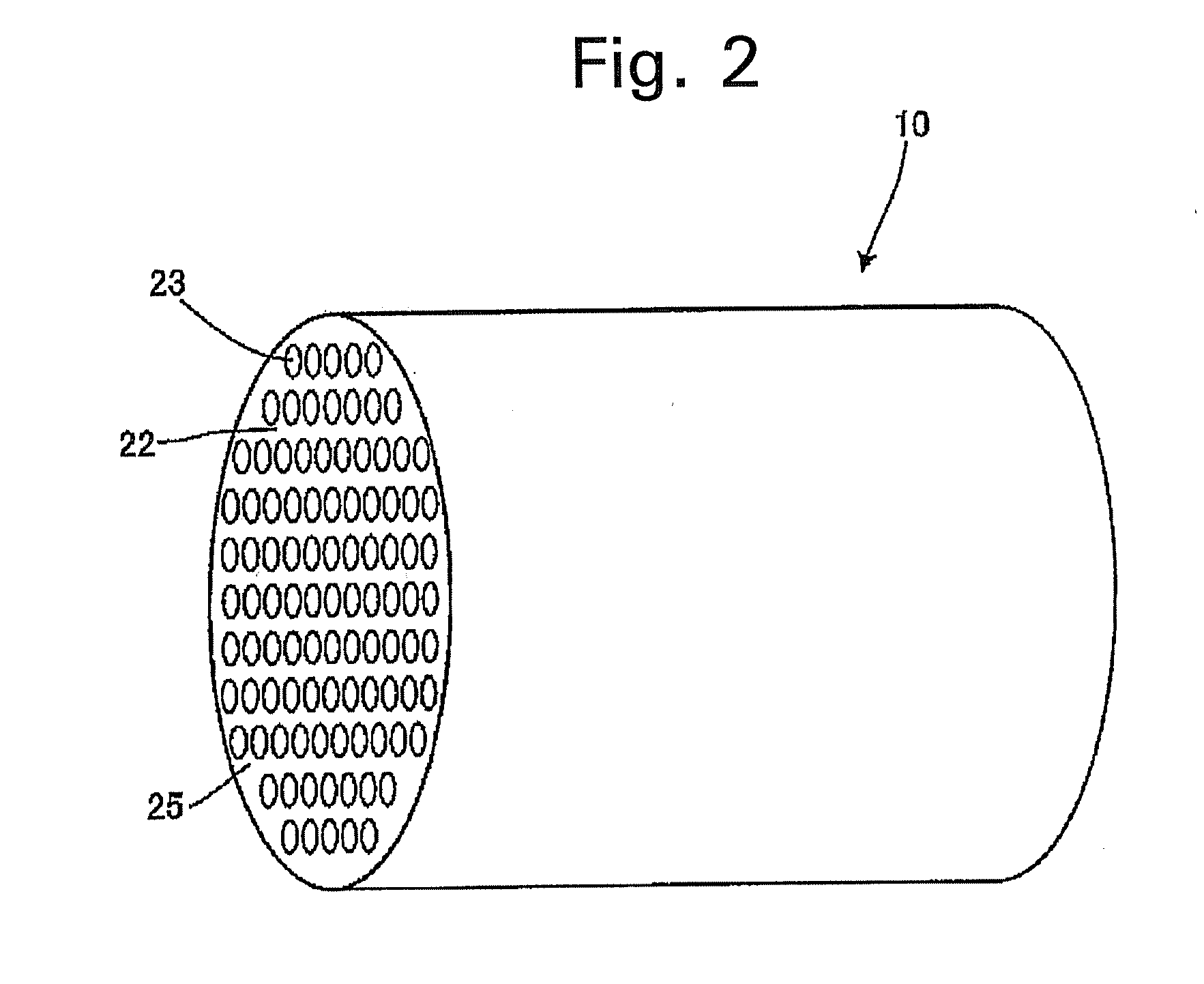Ceramic porous membrane and ceramic filter
a ceramic filter and porous membrane technology, applied in the direction of membranes, filtration separation, separation processes, etc., can solve the problems of membrane peeling, the porous membrane formed on the fired base surface is generated by defects, and the membrane cannot be uniformly formed on the whole base surface, etc., to achieve less defects, reduce the number of membrane formation times, and reduce pressure loss
- Summary
- Abstract
- Description
- Claims
- Application Information
AI Technical Summary
Benefits of technology
Problems solved by technology
Method used
Image
Examples
example 1
(1) Porous Base Member
[0047]A material provided with an alumina membrane having an average pore diameter of 0.2 μm and having a monolith shape (an outer diameter of 30 mm, a cell inner diameter 3 mm×37 cells and a length of 500 mm) was used as a base member. It is to be noted that opposite end portions of the base member were sealed with glass. The average pore diameter of the base member was measured based on an air flow process described in ASTM F306.
(2) Titania Sol Liquid
[0048]Titanium isopropoxide was hydrolyzed in the presence of nitric acid to obtain a titania sol liquid. A sol particle diameter measured by a dynamic optical scattering process was 100 nm.
(3) Titania UF Membrane Formation
[0049]The titania sol liquid was diluted with water to obtain a sol liquid for membrane formation. The liquid was circulated through base cells to come in contact with the cells, whereby the membrane was formed in the cells.
(4) Drying, Firing
[0050]After a sample was dried, the sample was therma...
example 2
[0056]During titania UF preparation of (1) to (4) of Example 1, titania was not fired unlike (4), and used as a base member, and then silica membrane formation of (6) to (9) was performed.
example 3
[0057]During titania UF preparation of (1) to (4) of Example 1, titania was fired at 300° C. in (4), and then silica membrane formation of (6) to (9) was performed.
PUM
| Property | Measurement | Unit |
|---|---|---|
| pore diameter | aaaaa | aaaaa |
| pore diameter | aaaaa | aaaaa |
| weight ratio | aaaaa | aaaaa |
Abstract
Description
Claims
Application Information
 Login to View More
Login to View More - R&D
- Intellectual Property
- Life Sciences
- Materials
- Tech Scout
- Unparalleled Data Quality
- Higher Quality Content
- 60% Fewer Hallucinations
Browse by: Latest US Patents, China's latest patents, Technical Efficacy Thesaurus, Application Domain, Technology Topic, Popular Technical Reports.
© 2025 PatSnap. All rights reserved.Legal|Privacy policy|Modern Slavery Act Transparency Statement|Sitemap|About US| Contact US: help@patsnap.com



